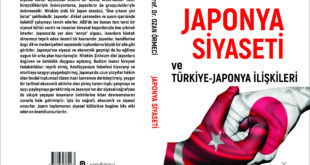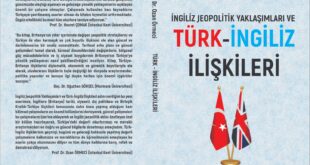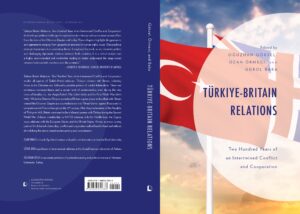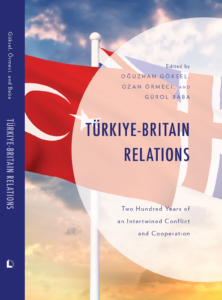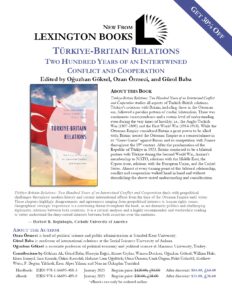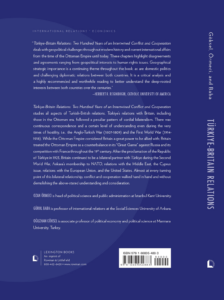Türkiye-Britain Relations: Two Hundred Years of an Intertwined Conflict and Cooperation studies all aspects of Turkish-British relations. Türkiye’s relations with Britain, including those in the Ottoman era, followed a peculiar pattern of cordial bilateralism. There was continuous correspondence and a certain level of understanding even during the very times of hostility, i.e., the Anglo-Turkish War (1807-1809) and the First World War (1914-1918). While the Ottoman Empire considered Britain a great power to be allied with; Britain treated the Ottoman Empire as a counterbalance in its “Great Game” against Russia and its competition with France throughout the 19th century. After the proclamation of the Republic of Türkiye in 1923, Britain continued to be a bilateral partner with Türkiye during the Second World War, Ankara’s membership to NATO, relations with the Middle East, the Cyprus issue, relations with the European Union, and the United States. Almost at every turning point of this bilateral relationship, conflict and cooperation walked hand in hand and without demolishing the above-stated understanding and consideration.
Product details
-
Publisher: Lexington Books
-
Pages: 316
-
Trim: 6 x 9
-
ISBN: 978-1-66695-488-3 (Hardback)
- ISBN: 978-1-66695-489-0 (eBook)
-
Date: December 2024
-
Subjects: Political Science / International Relations / General, Political Science / Public Policy / Economic Policy, Political Science / History & Theory
Editors
Ozan Örmeci is head of political science and public administration at Istanbul Kent University.
Gürol Baba is Professor of international relations at the Social Sciences University of Ankara.
Oğuzhan Göksel is Associate Professor of political economy and political science at Marmara University, Turkey.
Reviews
Türkiye-Britain Relations: Two Hundred Years of an Intertwined Conflict and Cooperation deals with geopolitical challenges throughout modern history and current international affairs from the time of the Ottoman Empire until today. These chapters highlight disagreements and agreements ranging from geopolitical interests to human rights issues. Geographical strategic importance is a continuing theme throughout the book, as are domestic politics and challenging diplomatic relations between both countries. It is a critical analysis and a highly recommended and worthwhile reading to better understand the deep-rooted interests between both countries over the centuries. — Herbert R. Reginbogin, Catholic University of America
You can find more details about the book as well as links to purchase the book below.
In order to buy;
 Dr, Ozan Örmeci Kişisel Web Sitesi, Bilimsel Makale, Akademik Makale, Türk Dış Politikası
Dr, Ozan Örmeci Kişisel Web Sitesi, Bilimsel Makale, Akademik Makale, Türk Dış Politikası

